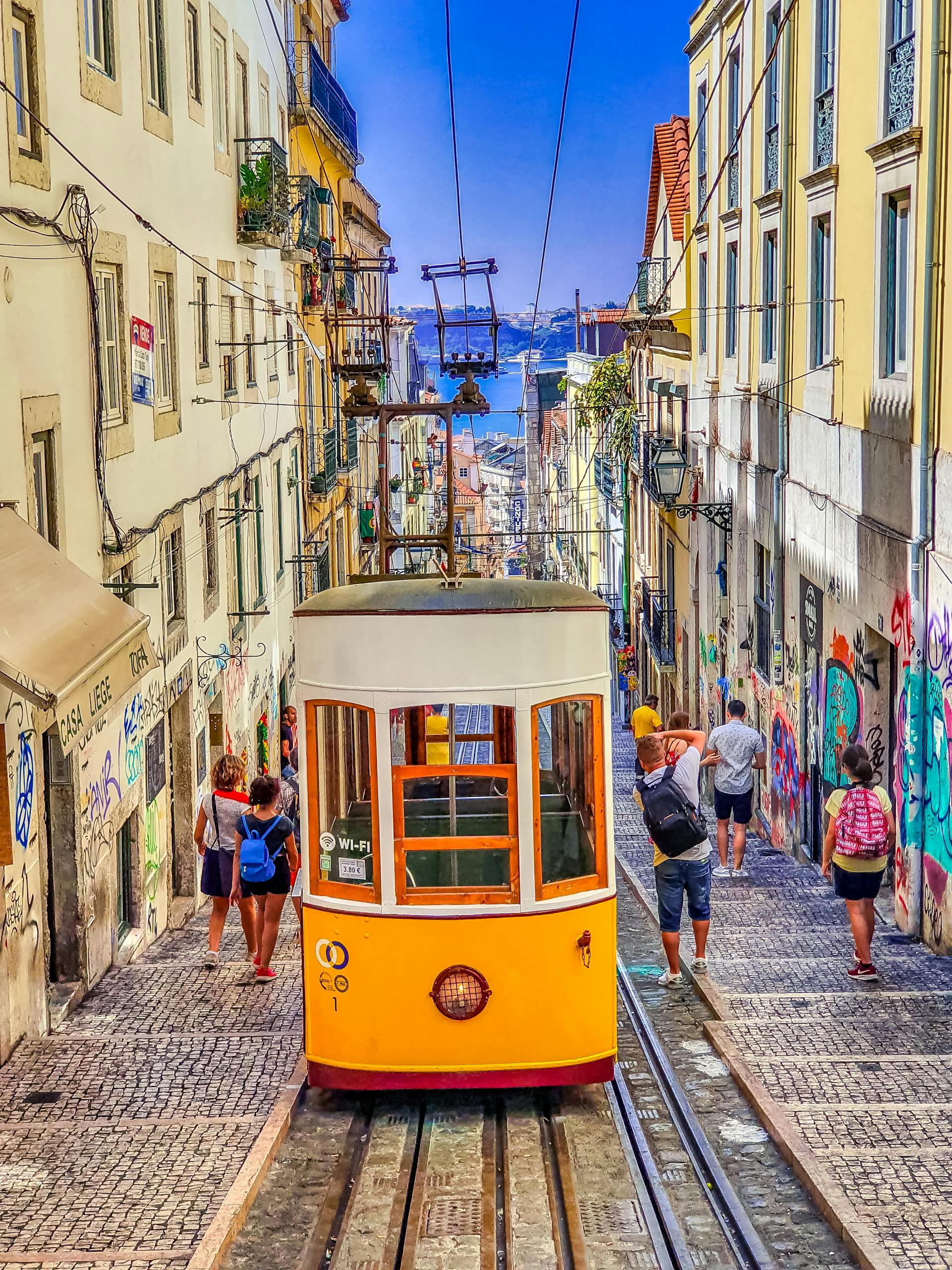Portugal at the Crossroads: A Manifesto to Break the Illusion and Reclaim the Future
We are told that Portugal is moving forward. That the economy is growing. That reforms are underway. That the system works. The metrics look good. The slogans sound confident. But anyone paying attention knows something is deeply off.
Ask the family who can’t afford both rent and groceries. Ask the nurse who worked a 14-hour shift and still had to buy her own gloves. Ask the graduate fluent in three languages, holding a master’s degree, earning less than minimum wage on a zero-hours contract. Ask anyone waiting for surgery, not for months—but years.
Scratch the surface, and what you find is not progress—it’s paralysis. Polished, packaged, marketed as resilience. But at its core, it’s stagnation. And the price is being paid by those who never got invited to the conferences.
This is not a manifesto of fantasies. It is a map to dig us out of the mire. It is a refusal to settle for cosmetic change. It is a call to remember who this country belongs to—and to act before we forget that completely.
I. Transparency Isn’t Optional. It’s Oxygen.
Corruption does not always wear a balaclava. Sometimes it wears a suit and speaks softly. Sometimes it hides behind acronyms, committees, and a thousand unreadable PDFs.
Portugal needs a radical culture shift toward proactive transparency. Every public euro above €10,000 must be not only disclosed but contextualized: who received it, why, under what conditions, and what outcomes are expected. The information must be real-time, searchable, and written in human language. Not buried in 300-page reports. Not filtered through PR offices. Public money means public knowledge.
Every ministry, municipality, and public entity must operate under binding performance contracts—trust contracts—with indicators visible to all. Missed objectives should trigger automatic review and, if needed, change in leadership. Not as punishment, but as the baseline of public responsibility.
Because when there’s no light, rot doesn’t just survive—it thrives.
II. A Rotten Political Culture Cannot Be Recycled—It Must Be Rebuilt.
Portugal does not lack talent. It lacks political will to get out of the way.
Open party lists must replace closed slates. Let the electorate choose their representatives directly. End the career pipeline from campus to party youth wing to Parliament. Politics should be a public service—not a lifelong profession insulated from consequence.
We propose two-term limits for MPs and mayors, and a five-year cooling-off period before any former official can take a private-sector role in an area they previously regulated. Conflicts of interest should not be “declared.” They should be disqualified.
Political party funding must be publicly disclosed, audited independently, and capped. Let the era of opaque dinners and wink-nudge consultancy roles end. The people are not naïve. They are tired of being treated like they are.
III. The Abandoned Interior: A Wound, Not a Footnote.
From Bragança to Beja, the story repeats: schools close, buses vanish, and the young leave—not for adventure, but because survival demands it. The interior is not empty by accident. It was drained.
Declare National Rebalancing Zones with bold, irreversible commitments:
- Zero VAT for essential goods in priority municipalities.
- Relocation grants for professionals in education, health, and justice.
- Infrastructure fast lanes—build rail, broadband, and basic services first, not last.
- Incentives for remote work and regional entrepreneurship.
Reopen not just services, but the imagination of what life inland can be: thriving regional universities, green tech hubs, agritech incubators, cultural investment.
A country that lets half its land die is not small. It’s shrinking.
IV. Public Services Are Not Charity. They Are the Republic.
When health professionals are applauded from balconies but ignored in budgets, the applause becomes insult. When teachers are called the backbone of society but denied stability and respect, the spine breaks.
Reform must begin by listening. Nurses, teachers, social workers, firefighters—these are not line items. They are the scaffolding of the state.
We must:
- Dramatically increase base salaries and eliminate precarious contracts.
- Fund continued training as a right, not a perk.
- Reduce bureaucratic drag that consumes hours with irrelevant documentation.
- Invest in school infrastructure, smaller classrooms, and pedagogical autonomy.
And above all, we must restore dignity—not only with euros but with trust.
V. Civic Education Is Not Optional. It’s the Immune System of Democracy.
Civic decay begins with civic ignorance. We propose mandatory civic education starting in primary school, with age-appropriate curricula teaching democratic values, media literacy, environmental responsibility, and how government really works.
Let young people learn what taxes fund, how laws are made, and how to protest—not from TikTok, but from thoughtful, localised instruction.
Because a citizen that understands their power is a citizen harder to manipulate.
VI. Immigration Without Strategy Is Not Openness—It’s Negligence.
Portugal has a demographic problem. We are aging, and our birth rate is unsustainable. We need immigration—not in theory, but urgently.
Yet urgency cannot become chaos. Integration is not a warm word. It’s infrastructure: language schools, cultural orientation, housing policies, and labour protection. Without it, we get resentment, ghettoization, and exploitation.
Create regional quotas based on labour shortages. Incentivize immigration to low-density areas. Provide Portuguese courses with childcare, transportation, and job-matching support. Build community liaisons between local populations and new arrivals.
Do this, not because it looks good in a speech. But because it prevents anger, builds unity, and honours both host and guest.
VII. The Railway Is Not Romantic. It’s Strategic.
We cannot fight climate change, rural isolation, and economic stagnation without trains. Period.
Every region with more than 50,000 people must be connected to the national rail grid. High-speed lines must finally materialize—not in endless PowerPoints, but in concrete and steel. Lisbon–Porto in under 90 minutes. Aveiro to Guarda in two hours. Daily, reliable, accessible.
Railcards, affordable monthly passes, and intermodal systems should make it easier to take a train than drive. Not just for tourists, but for students, farmers, and parents with strollers.
If we want the country to move forward, people must be able to move freely.
VIII. Bring Them Home.
Portugal’s greatest export is not wine, cork, or cod. It’s its people.
The diaspora is full of talent we exiled with neglect. Let’s build bridges back:
- Offer tax breaks and fast-track startup support for returning professionals.
- Recognize foreign diplomas without labyrinthine procedures.
- Prioritize public housing access for returnees with family responsibilities.
- Launch a multilingual portal dedicated to connecting the diaspora to real opportunities in Portugal.
Let return be not a sacrifice, but a choice worth making.
IX. A Government That Thinks Must Prove It.
Every policy should be backed by data and measured by outcome—not slogans.
Establish an independent Evidence Council with legal authority to review laws before they’re passed. Include scientists, economists, social workers, and citizens. Publish full impact assessments with citizen summaries. If the evidence contradicts the policy, require public explanation from Parliament.
The age of “doing something for the sake of doing something” must end.
X. A Digital State That Works for the Citizen, Not the Other Way Around.
The current Cartão de Cidadão is due for a bold reinvention. We propose a new generation of citizen identity: mobile-first, privacy-focused, and feature-rich.
This “new citizen card” would:
- Integrate seamlessly with the government’s mobile wallet.
- Serve as a digital key to all state services.
- Include optional features such as medical history sharing, travel pass integration, and secure e-voting.
- The physical version of the card will remain available for all citizens, with a guarantee of issuance for anyone over 75 or with accessibility needs. Digital-first is the future—but it must never be mandatory. Inclusivity means respecting analogue realities.
The goal is not just convenience, but digital dignity—ensuring that technology empowers without excluding.
XI. Invest Like We Mean It.
We need to stop seeing investment as handouts. Mental health is an investment. Scientific research is an investment. Public art is an investment.
Create a sovereign innovation fund. Finance long-term, low-return but high-impact projects in public infrastructure, regional development, arts, and sciences.
Fund local journalism. Support cooperative farming. Equip libraries with AI literacy courses. These aren’t expenses. They are blueprints for a nation that lasts.
XII. This Country Belongs to Its People.
Portugal is not a resort. It is not a tax haven. It is not a logo. It is a collective inheritance.
It is time to say this, out loud: our future will not be subcontracted. Not to Brussels, not to Silicon Valley, not to the next marketing campaign.
Celebrate our language, protect our coast, value our contradictions. Say no when no must be said. Say yes when yes means courage.
If It Feels Impossible, It’s Because We’ve Been Lied To.
What’s truly radical is pretending this is the best we can do.
No saviours are coming. No hashtags will fix it. But if we still dare to think, to question, to connect—then maybe we still deserve the country our grandparents imagined, and our grandchildren will need.
The illusion has cracked.
Now let’s break it open.
✍️ Authorship Note
This piece was written by a human, with care, intention, and deep reflection.
While digital tools may have assisted in structuring or editing, every thought, argument, and sentence was created to express a human truth — not to pass an AI detector.






